
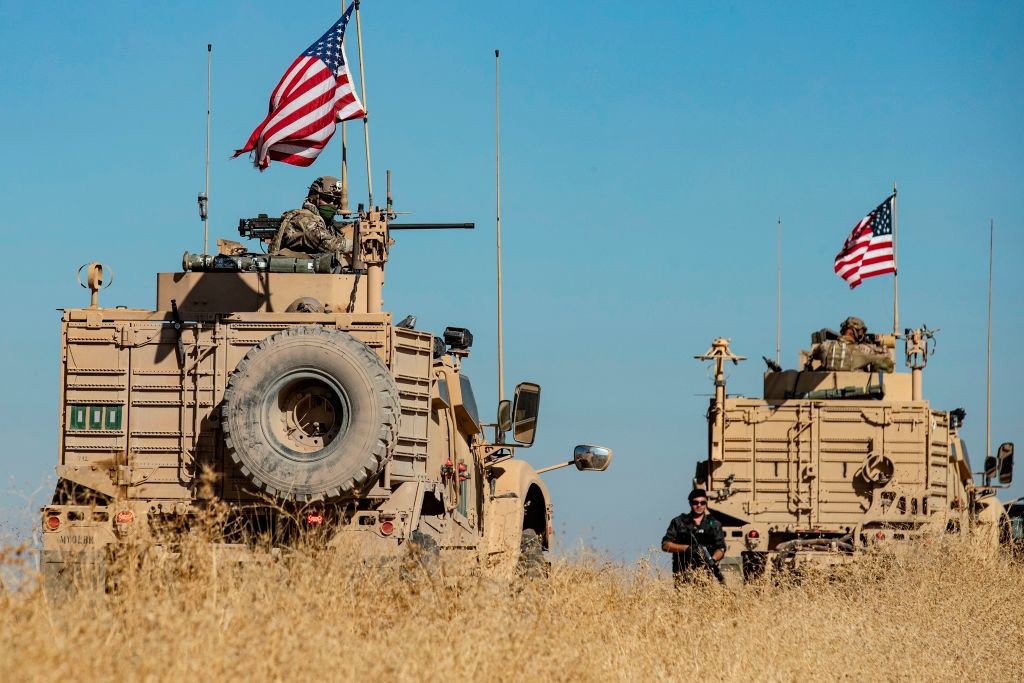
Summary
Today the Middle East is as complex as it has ever been. All of the underlying issues that have undermined progress remain present: sectarianism, corruption, disenfranchisement, economic disparity, terrorism, and extraordinary human suffering. But these long-standing issues are now being exacerbated by super-modern communication capabilities and a more youthful and anxious population that serve to amplify the challenges of the region. The region is on edge — and it is in fact a tinder box with few clear paths to stability or de-escalation. The best way forward is to relentlessly pursue clarity in our interests and objectives. This is the best thing we can do to de-escalate tensions, pursue our interests in the region, and support our overall global national security strategy.
Introduction
Today the Middle East is as complex as it has ever been. All of the underlying issues that have undermined progress remain present: sectarianism, corruption, disenfranchisement, economic disparity, terrorism, and extraordinary human suffering. But these long-standing issues are now being exacerbated by super-modern communication capabilities and a more youthful and anxious population that serve to amplify the challenges of the region. Add to this new conflict (as we see between Turkey and the Kurds in Syria); increasing instances of civil unrest against corrupt and ineffective governments (as we are seeing in Lebanon and Iraq); increasing instances of Iranian-sponsored proxy war across the region (as we see in Yemen, Syria, and Iraq); great power competition (between China, Russia, and the U.S.); unresolved conflicts in Syria, Yemen, and Afghanistan; and fatigue on the part of many of the countries (including ours) that have been engaged in this region for a long time. The region is on edge — and it is in fact a tinder box with few clear paths to stability or de-escalation.
I will start by discussing one big overarching idea and then get more specific about several of the ongoing operations and events that we are currently observing in this vitally important area.
My main takeaway is that the best path to stability is to relentlessly pursue clarity in our interests and objectives. I believe this is the best thing we can do to de-escalate tensions, pursue our interests in the region, and support our overall global national security strategy.
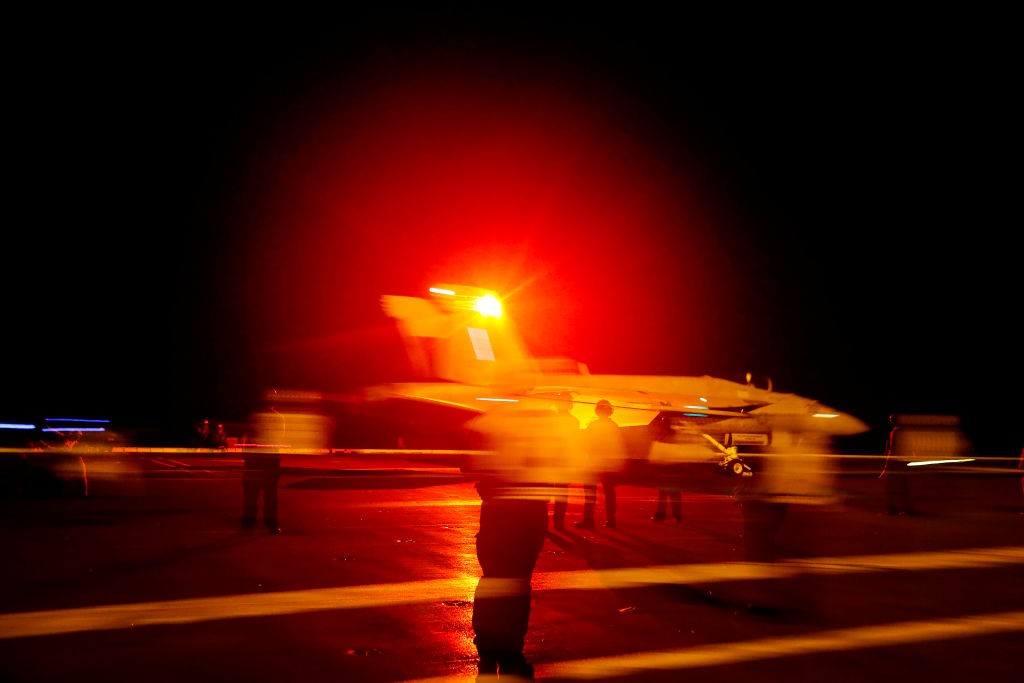
"My main takeaway is that the best path to stability is to relentlessly pursue clarity in our interests and objectives. I believe this is the best thing we can do to de-escalate tensions, pursue our interests in the region, and support our overall global national security strategy."
US interests
First and foremost, as a priority I think we have to review, renew, and more clearly articulate our interests and priorities in this region. Only then can we begin to devise an effective regional strategy that can be integrated with our national interests around the globe and that can be effectively implemented by those who do our bidding on a day-to-day basis.
When people ask me why we care about this area, I usually try to discuss our interests in five ways:
- Ensure countries, areas, and populations in the region can’t be used as platforms for attacks against our homeland, our citizens, or those of our friends and allies.
- Prevent proliferation of weapons of mass destruction.
- Deter and contain adversarial influence and activities that further destabilize the region and prevent them from spilling out and affecting our interests in other regions.
- Protect freedom of navigation and flow of commerce through the region.
- Maintain a favorable balance of influence that supports our long-term national interests.
This list of interests has not changed significantly for some time, and I do acknowledge that an argument can be made about the “vitalness” of each of these interests. With the possible exception of proliferation, I would agree that these interests are not currently “existential” to the survival of the United States, but that does not mean they aren’t important. Failing to preserve any one of them would only make things more complicated and complex, and potentially put our citizens at greater risk.
That said, we cannot ignore that over the last several years we have responded militarily and diplomatically in some manner to four of these interests, and the fifth — proliferation — triggered a significant, lengthy, and largely unprecedented diplomatic effort.
Interests, and their priority and vitalness, ought to be a significant factor in a future strategic vision for this region. For the purposes of discussion and argument, I will consider the interests mentioned above to fall into the category of important but not vital interests, meaning that our very survival is currently not at risk.
In the past few decades our strategic approach to this region has been defined by preserving access to vital resources, containing Iraqi aggression, countering Iran’s revolutionary approach, or by our concern for terrorism that emanates from the region and ends up on our doorstep or the doorsteps of our close partners.
All four of these remain important, but in my view none of them should dominate our overall approach to the region. Our priority should be focused on preserving an overall favorable balance of power in the region when compared to other great power competitors or would-be regional hegemons.
As the U.S. Special Operations Command (SOCOM) and later the U.S. Central Command (CENTCOM) commander, I was supported by a cadre of excellent policy advisors (POLADs). One of the things they often reminded me of was the foreign policy “principle” (as they referred to it) that allowing any single power to dominate this part of the world would be detrimental to our overall national security objectives. Many of our relationships and alliances were built around this fact. I think this “principle” is still valid today.
This is not new in our approaches to the region. I often remind people that my first roommate at West Point came to the Academy from Tehran American High School. His father was our defense attaché. This level of balance on both sides of the Arabian Gulf helped us — until it didn’t. Up until that time we didn’t have large deployments of troops in the region. We didn’t need them; our balanced relationships on each side maintained a relative level of stability that served our interests.
I am also not suggesting that we orchestrate some sort of near-term “kumbaya” moment with the Iranians. I don’t think this is particularly wise or even achievable right now.
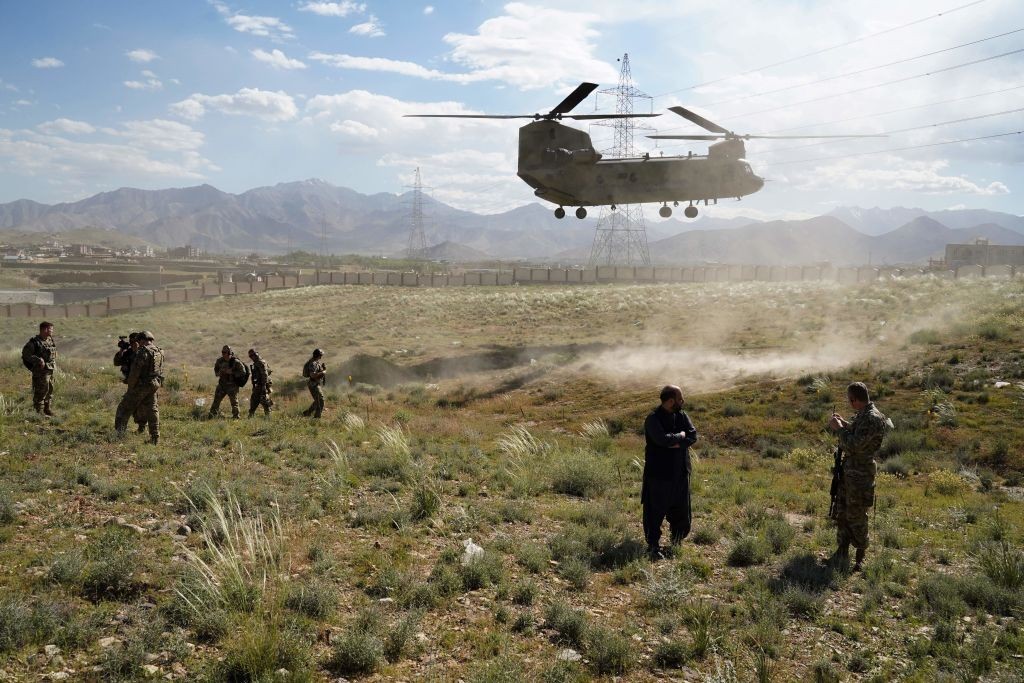
"Our priority should be focused on preserving an overall favorable balance of power in the region when compared to other great power competitors or would-be regional hegemons."
Strategic approach
What it does mean is that the United States should pursue an overall strategic approach that makes or keeps us (depending on your view) the preferred partner in the region: morally, diplomatically, economically, and militarily. Being the preferred partner will allow us an opportunity to preserve our important interests in this region while at the same time shifting the necessary focus to address vital national interests that are essential to our survival — like maintaining our competitive edge against China.
And it can be done in a sustainable manner. Doing this will require that we also pursue some very specific actions that help to solidify our influence. These could include the following:
-
A re-look at our security cooperation arrangements, both in terms of organization and in execution of our military funding and sales programs. Our efforts must be backed up with an emphasis on responsiveness, professionalism, and self-reliance. In a region where we are the preferred partner, our security cooperation offices should be the main military effort, working closely through the country teams to implement programs for our partners and with our combatant commands to support theater campaign plans.
-
To compliment this, we must make our support conditional on commitments to military professionalism and sustained self-reliance. We should use our considerable experience in coalition war-fighting to help our partners in the region achieve a better level of integration and unity of effort among themselves.
-
We should triple the amount of money we spend on International Military Education and Training (IMET). This is a certain way to create a generation of regional leaders and their families who have an appreciation for our country. During my last year in CENTCOM, we spent just under $19 million on this program. In the big picture it is not that expensive, but what we get from it is invaluable. We get officers that study in our schools and families that live in our communities. If you don’t think this matters, look at the most supportive and progressive defense chiefs across the region — overwhelmingly many have spent time in our schools. Their families have had the experience of living in Leavenworth, Carlisle, Montgomery, Newport, and here in Washington and have gained and taken away a positive view of our people and our nation. Look also at the countries where we have stepped these programs back; it is notable in their lack of understanding and appreciation of our country.
-
We should review and update our access, basing, and overflight arrangements throughout the region with a view to ensuring that they can support our ability to respond quickly and effectively in the event of a true emergency.
-
We should routinely demonstrate our commitment to the region with deployment exercises focused on likely security scenarios. We should not forget the impact of the BRIGHT STAR exercises of the early 1980s for both their deterrent and commitment demonstrations.
-
There are clearly many other things that we can and must do to solidify our influence as well, but I think you get the point behind this overarching idea and the high priority in my view.
With this overarching idea now on the table, let me address a few ongoing and emerging areas and offer my assessment on where we are and where we may be going.
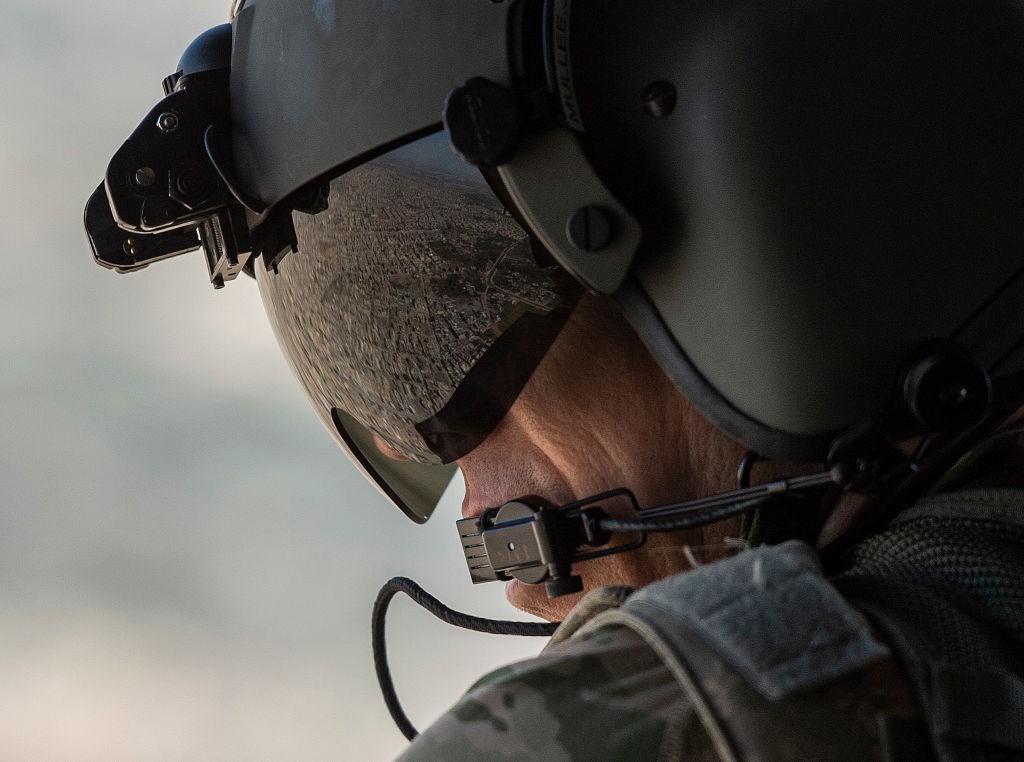
"The United States should pursue an overall strategic approach that makes or keeps us the preferred partner in the region: morally, diplomatically, economically, and militarily."
Afghanistan
Let me begin with our longest ongoing conflict in Afghanistan. I believe the president’s strategy for Afghanistan is the right one: focus on reconciliation between the Afghan government and the Taliban. This is the only way we will bring an end to the fighting and move this conflict into a phase where we can begin to stabilize the situation in Afghanistan and across the region.
To this end, our military and diplomatic efforts need to remain focused on providing pressure on the Taliban, and indeed all parties, to come to the table and make meaningful concessions in the interest of the Afghan people. If they perceive we are not serious about this, we will have a hard time achieving our objective.
A full court press by all elements of our national power will help the president’s special envoy, Zalmay Khalilzad, get this done. For the last year of my command I observed closely and worked alongside our special envoy, and I assess his efforts are bringing us, sometimes agonizingly slowly and with frustrating road bumps, toward the objective we have been seeking. What is happening is not the result of desperation or a few meetings, it is part of a longer, more engaged approach to achieve our objective. We need to maintain a level of energy and patience that demonstrates to all parties that we remain serious and focused on achieving our objective.
In the long term we will still need to preserve our interest in preventing this area from being used as a platform to attack our citizens, our homeland, or our friends and allies.
This will likely mean that we will need to keep some amount of counterterrorism capability on the ground. Fortunately, the Afghan special operations forces partners we have are quite capable and while we may not be at a point where we can outsource preserving this national interest to them, it will certainly allow us to do this in a more economical and sustainable manner.
I am also hopeful that more stability in Afghanistan will provide an opportunity to re-establish better linkages to Pakistan. There is an important balance to be struck between Afghanistan, Pakistan, and India, and staying engaged more broadly in Central and South Asia will benefit our long-term national interests, allow us to compete against other great powers, and hopefully help prevent another situation that requires a massive, costly, and lengthy response.
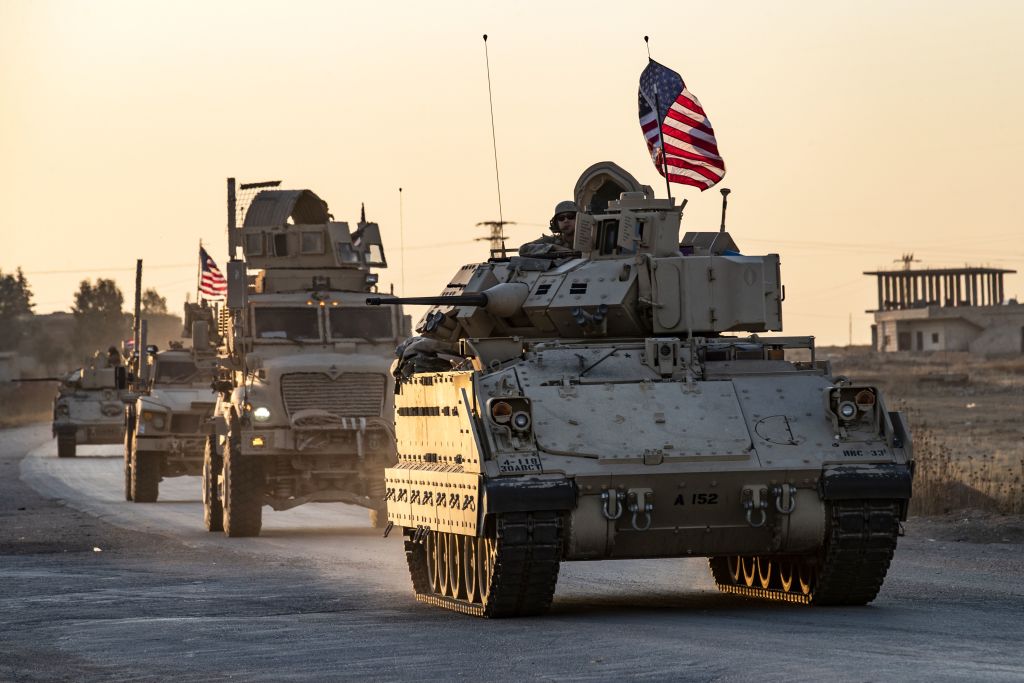
Syria
It goes without saying that the dynamics in northern Syria have changed rather significantly of late. I assess the decision to retain some forces on the ground in north and east Syria, following our pullback from the northern border, is a prudent one given the new situation. It will allow us to maintain some level of partnership with the Syrian Democratic Forces and importantly stay focused on our campaign objective of defeating ISIS — and in this present case, prevent them from orchestrating a comeback.
I fear, however, that our rather sharp policy decisions have come at the cost of the overall strategic leverage that we previously enjoyed following our liberation of the caliphate earlier this year.
As we move forward, I think it will be important to clarify our objectives and make it abundantly clear to all parties what our interests and expectations are in this area at this time. We should attempt to remove all ambiguity about our position in Syria. This will be the very best way to de-escalate situations that may arise among the growing number of converging influencers in this area.
We should also work with the other regional influencers to limit (or reverse) the impact of the Turkish-led incursion and address the continuing reports of atrocities and other humanitarian issues.
Like all things in this region, we must use our remaining influence to move forward diplomatically toward a political settlement in Syria (hopefully through a UN-brokered process). I don’t think there is a better alternative to this.
We must also use our relationships to encourage a discussion between Kurds and Turks to de-escalate the current tensions. As difficult as this may be, it must be attempted. I remain guardedly confident that this could be done and should be attempted through relationships with Iraqi Kurds who enjoy a better relationship and open channels with the Turkish government. This is an underlying tension and until it is addressed, it will be very difficult to move forward.
It will also be important to keep our eye on ISIS, and our deconfliction channels with the Russian Federation will be vital to de-escalation.
If there is one thing we have learned about these terrorist organizations since 9/11, it is that they are resilient and we must keep the pressure on them until they are at a level that can be effectively managed by local forces.
Iraq
I am hopeful that we will continue to stand by our Iraqi partners. The civil situation on the ground is not good right now and our positive partnership with the Iraqi Security Forces is necessary to ensure they operate in a manner that best serves the people of Iraq. Maintaining our influence here is important and so far our presence and activities in Iraq since our re-entry in 2014 have not become a rallying cry against us. We must continue this trusted-partner, behind-the-scenes approach.
Our military efforts should be matched with an equally focused diplomatic and economic effort. Iraq, in my view, has always been a strategic lynch-pin for us — indeed, the cross-roads of sectarianism in this region — and if we compete I do believe our interests can prevail. Recent events would suggest that Iran is not the preferred partner of the people of Iraq.
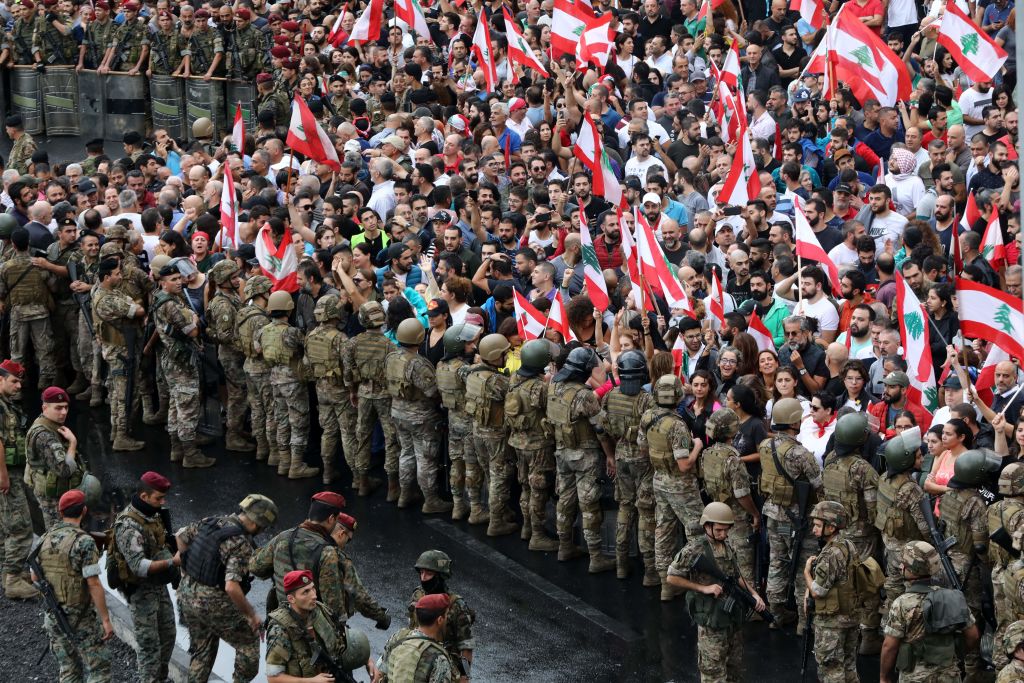
Lebanon
When I first became the CENTCOM commanding general, a very senior Israeli officer visited my office in Tampa. We had an extensive discussion about the situation in the region, and especially about Iran and Hezbollah. He clearly viewed this as the principal threat. When I pressed him on ideas to deal with the situation, one of his responses not only struck me, but stuck with me. He told me the best thing you can do is to double down on the Lebanese Armed Forces (LAF). I asked him to repeat that statement and then explain. He did and his simple argument was this: the best way to undermine the nefarious influence of Hezbollah’s armed militias was to invest in the professionalism and capability of the LAF. An effective, apolitical, and well-respected LAF would be recognized by the people and would undermine Hezbollah’s stated need for a militia.
My experience supported this. Every time I visited Lebanon during my tour as the CENTCOM commander, I saw progress in both professionalism, capability, and legitimacy in the eyes of the Lebanese population. I still think this is the case, and in the current turmoil of Lebanon there is an opportunity to double down right now by showing our support for a professional LAF that is focused on protecting the people.
The Gulf and Iran
Finally, let me briefly talk about the Gulf and especially our challenges with Iran. I assess that the Iranian threat is a real one — that they are pursuing both through use of proxies and through improved military capability. We must take it seriously. I further assess we need to defend our interests with military capability that demonstrates our resolve and which can hold Iran at risk.
Like I have mentioned several times already, I think it is also important to clearly articulate our objectives. We should attempt to remove all ambiguity. I am not sure we understand what Iran wants, and I am not sure they understand what we are after either.
At the same time we should also pursue channels for communication. I was deeply influenced by the effectiveness of the deconfliction channel we had with the Russian Armed Forces in Syria. I am convinced that this channel helped us keep things in check and more importantly kept our forces safe and focused on the mission at hand: the defeat of ISIS.
The big challenge in the Gulf, from my perspective, is always miscalculation. Clarity in objectives and ability to communicate are the necessary ingredients to reduce miscalculation and begin to de-escalate the tension that currently exists. It does not have to be elaborate; it could start mil to mil or even through a third party.
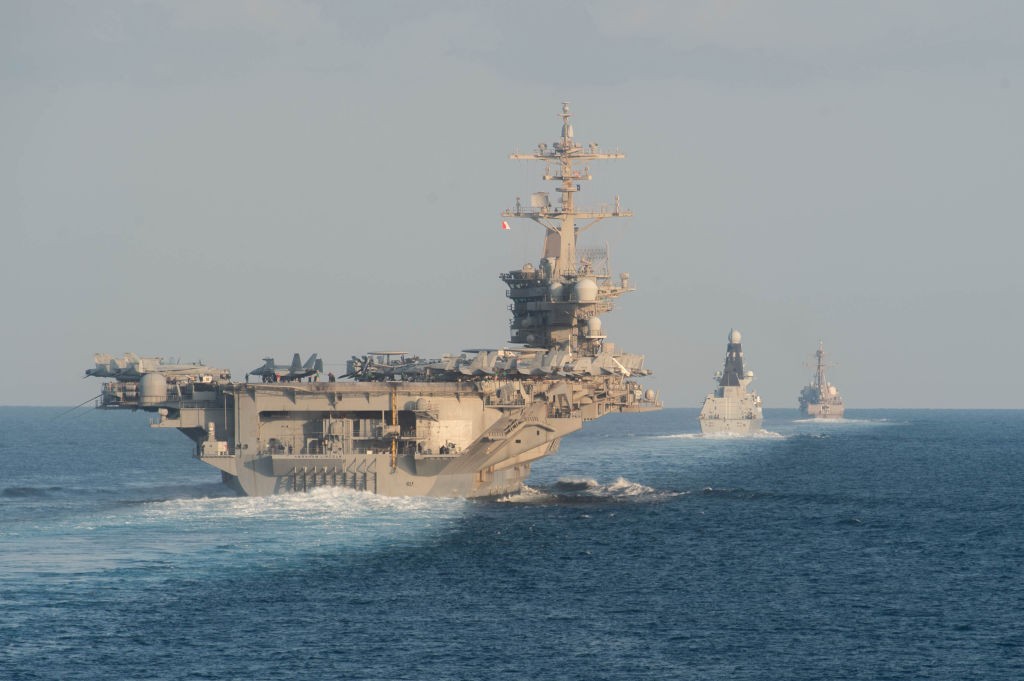
“The big challenge in the Gulf, from my perspective, is always miscalculation. Clarity in objectives and ability to communicate are the necessary ingredients to reduce miscalculation and begin to de-escalate the tension that currently exists."
Conclusion
I hope the preceding has provided a perspective on priorities in the region and some of the current hotspots, as well as offered some suggestions that can begin to posture us toward paths to stability. I am under no illusion how difficult all of this will be to orchestrate. I also recognize that we are just scratching the surface on these issues; it is impossible to do justice to the region in a short period of time. You may not agree with my assessment and conclusions, but I do believe it is possible to move forward. It begins with making sure that we are absolutely clear about our interests and objectives.
About the author
General (ret.) Joseph Votel is a distinguished senior fellow on national security at MEI. He retired as a four-star general in the United States Army after a nearly 40-year career, during which he held a variety of commands in positions of leadership, including most recently as commander of U.S. Central Command (CENTCOM) from March 2016 to March 2019.
In his role at CENTCOM, Gen. Votel oversaw military operations across the region, including the campaign against ISIS in Iraq and Syria. Before CENTCOM he was the commander of the U.S. Special Operations Command (SOCOM) and the Joint Special Operations Command (JSOC). He was the commander of the 75th Ranger Regiment when they deployed to Afghanistan in 2001 and to Iraq in 2003. While assigned to the Pentagon, he organized the original IED Task Force that eventually grew into the Joint Improvised-Threat Defeat Organization (JIDO).
During his military career, Gen. Votel gained extensive operational experience across the Middle East, Levant, Central and South Asia, Northern Africa, and the Horn of Africa. He was awarded numerous medals of service including three Defense Distinguished Service Medals, an Army Distinguished Service Medal, three Defense Superior Service Medals, two Legion of Merit medals, and four Bronze Star Medals.
About the Middle East Institute
The Middle East Institute is a center of knowledge dedicated to narrowing divides between the peoples of the Middle East and the United States. With over 70 years’ experience, MEI has established itself as a credible, non-partisan source of insight and policy analysis on all matters concerning the Middle East. MEI is distinguished by its holistic approach to the region and its deep understanding of the Middle East’s political, economic and cultural contexts. Through the collaborative work of its three centers — Policy & Research, Arts & Culture and Education — MEI provides current and future leaders with the resources necessary to build a future of mutual understanding.
Photographs
1. US military vehicles, part of a joint convoy with the Kurdish People's Protection Units (YPG) patrol near the town of Al-Muabbadah in the northeastern Syrian Hasakeh Province on the border with Turkey, on November 9, 2019. (Photo by DELIL SOULEIMAN/AFP via Getty Images)
2. Newly appointed commander of Operation SENTINEL, US Navy Rear Admiral, Alvin Holsey (unseen, holding scissors), Bahrain Defense Force (BDF) Commander-in-Chief, Field Marshal Sheikh Khalifa bin Ahmed Al-Khalifa (C), and US Navy Vice Admiral, James J. Malloy, Commander of U.S. Naval Forces Central Command and the US 5th Fleet, inaugurate the operations centre of the International Maritime Security Construct (IMSC) following its opening at the US 5th Fleet Command in the Bahraini capital Manama on November 7, 2019. (Photo by MAZEN MAHDI/AFP via Getty Images)
3. An F/A-18E Super Hornet from the "Sidewinders" of Strike Fighter Squadron (VFA) 86 launches from the flight deck of the Nimitz-class aircraft carrier USS Abraham Lincoln (CVN 72) May 10, 2019 in the Red Sea. (Photo by Mass Communication Specialist Seaman Michael Singley/U.S. Navy via Getty Images)
4. In this photo taken on June 6, 2019, a US military Chinook helicopter lands on a field outside the governor's palace during a visit by the commander of US and NATO forces in Afghanistan, General Scott Miller, and Asadullah Khalid, acting minister of defense of Afghanistan, in Maidan Shar, capital of Wardak Province. (Photo by THOMAS WATKINS/AFP via Getty Images)
5. A partial view of the Iraqi capital Baghdad is reflected in the visor of a US Army helicopter crew member as he looks out of a Chinook helicopter flying from the US Embassy to Baghdad International airport, following the helicopter of US secretary of State Mike Pompeo, on January 9, 2019. (Photo by ANDREW CABALLERO-REYNOLDS/AFP via Getty Images)
6. A convoy of US military vehicles drives near the town of Tal Tamr in the northeastern Syrian Hasakeh Province on the border with Turkey, on November 10, 2019. (Photo by DELIL SOULEIMAN/AFP via Getty Images)
7. Anti-government protesters facing Lebanese army soldiers wave national flags in the area of Jal al-Dib in the northern outskirts of the Lebanese capital Beirut, on October 23, 2019. (Photo by ANWAR AMRO/AFP via Getty Images)
8. The aircraft carrier USS Abraham Lincoln (CVN 72), left, the Royal Navy air defense destroyer HMS Defender (D 36) and the guided-missile destroyer USS Farragut (DDG 99) transit the Strait of Hormuz on November 19, 2019. (Photo by Zachary Pearson - U.S. Navy via Getty Images)












